PR
X
Calendar
Category
Hiekka aikaa
(731)Suomi
(322)Lappi
(53)Kuksa ククサ
(23)Luonto
(25)erämaa
(18)huomio
(162)muovimalli
(32)musiikki
(301)eläinpelastus
(79)veitset (knives)
(41)Olkoon voima kanssasi!
(35)剣の巻
(37)今は昔
(21)陽明学
(441)道家思想
(126)孫子兵法
(12)人鏡論
(13)海外通販/個人輸入
(26)日本独立計画
(49)隷属への道
(25)多目的道具
(206)現代甲冑考 - Modern Armors -
(80)実用物具考
(85)民間防具考
(177)民間防衛
(219)戦ふ日本刀
(97)實戦刀譚
(103)臨戦刀術
(94)古傳鍛刀術
(2)北欧
(118)西欧
(260)中欧
(35)彫金
(20)意匠
(58)『傭兵たちの挽歌』
(141)2011 jalkeen
(34)TORIAEZ
(11)Needle Felted Animals
(262)Weekly SAK
(597)Weekly SL
(485)Weekly EXP
(39)Keyword Search
▼キーワード検索
2024年12月
2024年11月
2024年10月
2024年09月
2024年08月
2024年11月
2024年10月
2024年09月
2024年08月
2024年07月
2024年06月
2024年05月
2024年04月
2024年03月
2024年06月
2024年05月
2024年04月
2024年03月
テーマ: 老荘思想(128)
カテゴリ: 道家思想

Photo by Jason Rodriguez
Youtube - BONSAÏ STUDIO
Mont Huangshan Chine ( The Yellow Mountain)
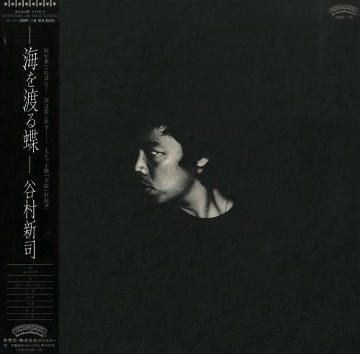
※ 群れから離れて掟を逃れて
~「天狼」 『海を渡る蝶』所収
道家思想篇 22 韓非子・解老篇 8 道(Tao)って何だ?
群れから離れて掟を逃れて〜
「物に先だちて行〔おこな〕い、理に先だちて動く、之を前識〔ぜんしき〕と謂〔い〕う。
前識〔ぜんしき〕とは緣〔よ〕る無くして妄〔みだ〕りに意度〔いたく〕する也。
何を以て之を論ずる。詹何〔せんか〕坐〔ざ〕す、弟子〔ていし〕侍〔じ〕す。
牛〔うし〕門外〔もんがい〕に鳴く。
弟子曰く、是〔こ〕れ黑牛〔こくぎゅう〕なり、而〔しこう〕して白題なりと。
人をして之を視〔み〕しむ、果〔はた〕して黑牛〔こくぎゅう〕にして、
布〔ふ〕を以て其の角を裹〔つつ〕めり。
詹子の術を以て、眾人(衆人)の心を嬰〔ふ〕るるは、華焉〔かえん〕として殆うし。
故に曰く、道の華なりと。
嘗試〔こころ〕みに詹子〔せんし〕の察〔さつ〕を釋〔す〕てて、
五尺の愚童子〔ぐどうじ〕をして之〔これ〕を視しるも、
亦〔また〕其の黑牛にして布を以て其の角を裹〔つつ〕むを知る也。
故に詹子の察を以て、心を苦め神を傷めて、而る後與五尺の愚童子と功を同じくす。
是れを以て曰く、愚〔ぐ〕の首〔はじめ〕なりと。
故に曰く、前識は道の華なり、而して愚の首〔はじめ〕なりと。
所謂〔いわゆる〕大丈夫〔だいじょうぶ〕とは、其の智大なるを謂う也。
所謂其の厚きに處〔しょ〕して其の薄きに處〔しょ〕さずとは、
情實〔じょうじつ〕を行いて禮貌〔れいぼう〕を去る也。
所謂其の實〔じつ〕に處〔しょ〕して其の華に處〔しょ〕さずとは、
所謂彼〔か〕を去り此を取るとは、去禮貌〔れいぼう〕と徑絕〔けいぜつ〕とを去りて、
理に緣ると情實とを取る也。
故に曰く、彼を去り此を取ると。
( 『韓非子』解老 第二十)
To act before affairs take place and move before principles are clear,
is called foreknowledge.
The foreknower makes arbitrary guesses with no special cause.
How can I prove this? Once upon a time, Chan Ho was seated and his disciples
were waiting upon him.
When an ox mooed outside the gate, the disciples said,
"It is a black ox but white is on its forehead."
In response to this, Chan Ho said,
"True, it is a black ox but the white is on its horns."
Accordingly, they sent men out to investigate it and found the ox was black and its
horns were wrapped with white cloth.
To bewilder the minds of the masses with the accomplished tact of Chan Tzŭ is almost
as brilliant as any gay flower.
Hence the saying: "Foreknowledge is the flower of Reason."
Supposing by way of trial we discarded the foresight of Chan Tzŭ and sent out an
ignorant boy less than five feet tall to investigate it, then he would know the ox was
black and its horns were wrapped with white cloth, too.
Thus, with the foresight of Chan Tzŭ, who had afflicted his mind and exhausted
his energy in order to attain it, was accomplished this same merit which an ignorant
boy below five feet tall can do.
Therefore, it is said to be "the beginning of ignorance". Hence the saying:
"Foreknowledge is the flower of Reason, but of ignorance the beginning."
"A great sportsman" is so called because his wisdom is great.
To "abide by the solid and dwell not in the superficial", as is said,
means to act upon inner feelings and realities and leave aside outer rules of propriety
and appearance.
To "abide in the fruit and dwell not in the flower", as is said,
means to follow causes and principles and make no arbitrary guesses.
To "discard the latter and choose the former", as is said,
means to discard outer manners and arbitrary guesses, and adapt causes, principles,
inner feelings, and realities.
Hence the saying: "He discards the former and chooses the latter."
( Han Feizi >Chapter XX. Commentaries on Lao Tzŭ's Teachings)
※「君は『はだしのゲン』の町内会長を助けるか?」は
[隷属への道] カテゴリーに移動しました。
昨年末〜年始にかけて、件の 歴史物語 のカスタマー・レビューにまだ勢いがあったので
「日本の近い将来、この調子で極右化したらどうするか?」
と真面目に心配しましたがよく調べてみると、
作者から出版社からして過去に問題山積の様子で
すでに世間的にも、ペテンのタネがバレバレなので安心した。
だとしたら、あの異常な量の肯定的レビューはなんだったのか(過去形)。
死んだ渡部昇一(呼び捨て!)の焼き直し版みたいな歴史物語本を出して
作家として起死回生、復活するつもりだったのだろうか?
いや、普通の人たちは騙されないって、こんなもん。
生前の渡部昇一本人ですら大学教授の肩書きを持ちながら、
まともな人たちをまったく騙せなかったのだから。
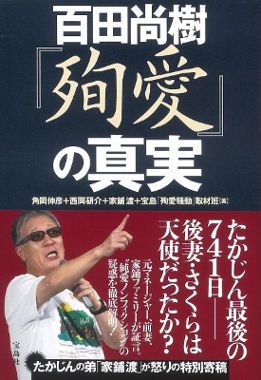
百田尚樹『殉愛』の真実
角岡 伸彦・西岡 研介・家鋪 渡・宝島「殉愛騒動」取材班 著 宝島社 発行
https://books.rakuten.co.jp/rb/13145053/
煽動者の人たちには残念ながら、
この歴史物語の引用元はもうわかってしまったので今後の展開も予想がつく。
必ず本丸である 「憲法改正」 をより声高に喚き出すであろう。
『殉愛』 の作家が、お口直しに 「憲法改正」 を叫ぶという、何たる茶番。
よくものを調べずに乗っかってしまう莫迦しか引っかからないのは自明だが。
また、間違ったり不勉強で例の 歴史夢物語 を買ってしまった人は他の本を読み
歴史夢物語 の出版者が近代〜現代の空とぼけている部分を補完すればよい。
そうすれば、日本の戦後の「空気」を統制していたのが
決して WGIP War Guilt Information Program などではなく
日本人自身だった とはっきり知ることができるであろう。
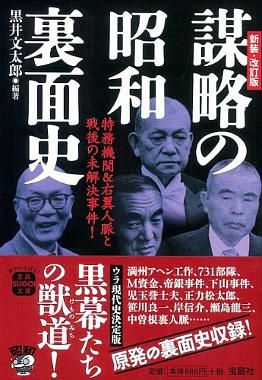
新装・改訂版 謀略の昭和裏面史 (宝島SUGOI文庫) 2011/7/7
黒井文太郎 著 宝島社 発行
https://books.rakuten.co.jp/rb/11217229/
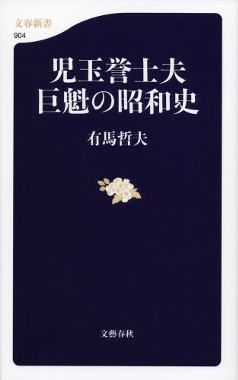
児玉誉士夫巨魁の昭和史 (文春新書) 2013/2
有馬哲夫 著 文藝春秋 発行
https://books.rakuten.co.jp/rb/12188250/
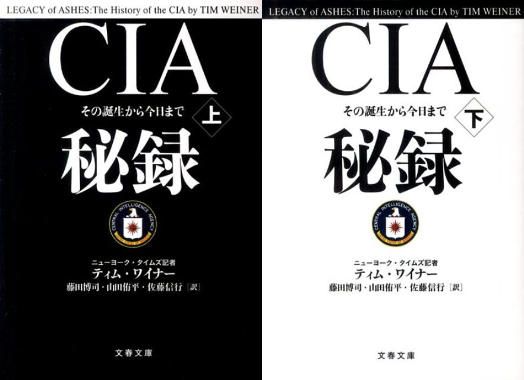
CIA秘録(上・下) その誕生から今日まで (文春文庫)
ティム・ワイナー, 藤田博司 著 文藝春秋 発行
(上)https://books.rakuten.co.jp/rb/11244901/
(下)https://books.rakuten.co.jp/rb/11244902/
どうして当ブログでこれまで、件の 歴史物語本 とそのレビューに過剰反応したかというと、
全体主義へとつながる超国家主義〜民族主義の横行は、
いずれ、隠れて暮らす者たちを監視し炙りだすことは明白だからである。
軽薄な政治煽動が発端となり、中世のような内乱状態となって、
再び日本人同士で殺し合いをしたくないものである。
お気に入りの記事を「いいね!」で応援しよう
Last updated
2019年01月27日 19時24分30秒
[道家思想] カテゴリの最新記事
-
道家思想篇 119 老子 顯質第八十一 (The… 2020年12月30日
-
道家思想篇 118 老子 獨立第八十 (Stand… 2020年12月23日
-
道家思想篇 117 老子 任契第七十九 (Adh… 2020年12月16日
【毎日開催】
15記事にいいね!で1ポイント
10秒滞在
いいね!
--
/
--
© Rakuten Group, Inc.











